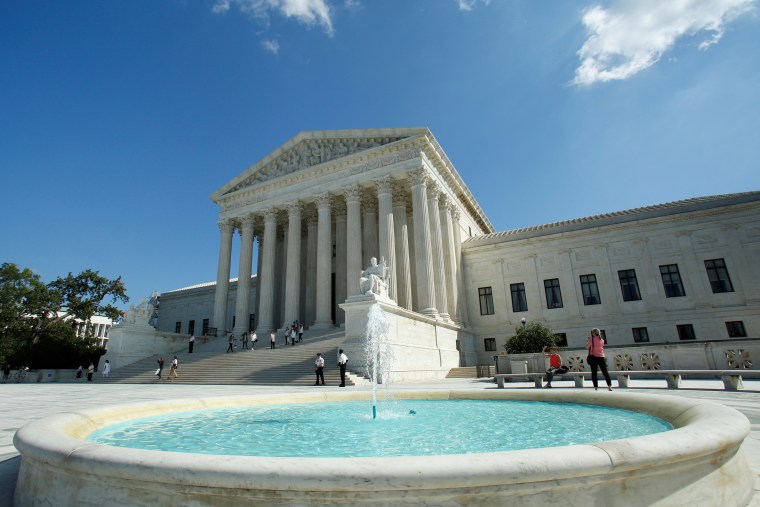The Supreme Court agreed Tuesday to decide whether former high-ranking government officials can be sued for a "hold until cleared" policy intended to identify potential terrorists in the days after the 9/11 attacks.
Former U.S. Attorney General John Ashcroft, former FBI Director Robert Mueller, and other officials of the George W. Bush administration were sued by a group of men who were rounded up on immigration charges after 9/11. The men claim they were held in unusually harsh and abusive conditions, even though the government had no evidence suggesting they had terrorist connections.
Related: The 9/11 Victims' Bill Is Now Law — What's Next?
Lower courts allowed the lawsuit to go forward, but the Justice Department appealed, arguing that there's no evidence Ashcroft, Mueller, and other officials were aware of the conditions of confinement. And even if they were generally aware, they can't be sued for pursuing a permissible program, the government said.
In announcing that it will hear the case, the court said Justices Elena Kagan and Sonia Sotomayor will not take part, which means it will be heard by only six justices. It would take four votes to prevail, but the even number remaining leaves the prospect of a 3-3 tie.

The former detainees say they were lumped in with potential terrorism suspects because they were, or appeared to be, Arab or Muslim. They were held in solitary confinement and claim they were verbally and physically abused by jail guards, deprived of sleep, and subjected to redundant strip searches.
"No one is above the law. To suggest that the most powerful people in our nation should escape liability when they violate clearly established law defies the most fundamental principle of our legal system," said Rachel Meeropol of the Center for Constitutional Rights, representing the victims.
But in urging the court to take the appeal, the Justice Department said national officeholders should not be deterred from taking the steps needed to respond to something like the 9/11 attacks "by the prospect of more than a decade of litigation."
In 2009, the Supreme Court ruled by a 5-4 vote that Ashcroft and other officials could not be sued for similar post 9/11 policies.
